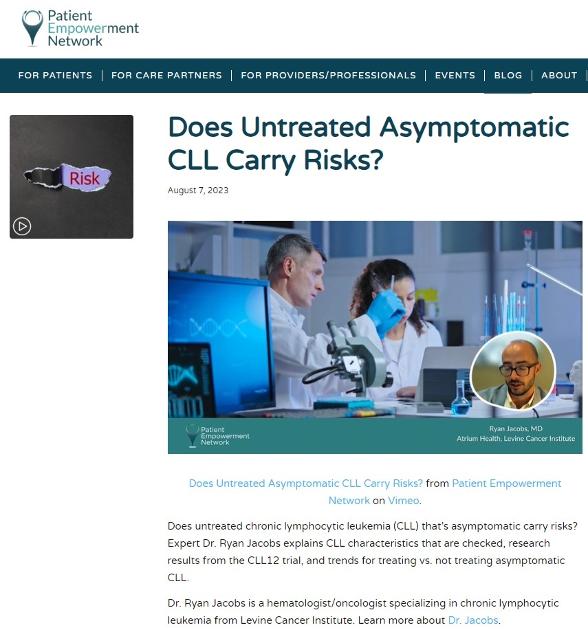Does Untreated Asymptomatic CLL Carry Risks? from Patient Empowerment Network on Vimeo.
powerfulpatients.org/2023/0...
And it was the CLL12 trial that was just presented at the European Hematology Association meeting that compared ibrutinib (Imbruvica) to a placebo in a blinded trial in higher risk CLL patients that didn’t meet clinical criteria to treatment. And the overall survival of the two groups after several years of following patients was, there was no difference in overall survival. So yet another study confirming that there’s no…you do not improve survival of patients when you try to treat them early.
-
Len
